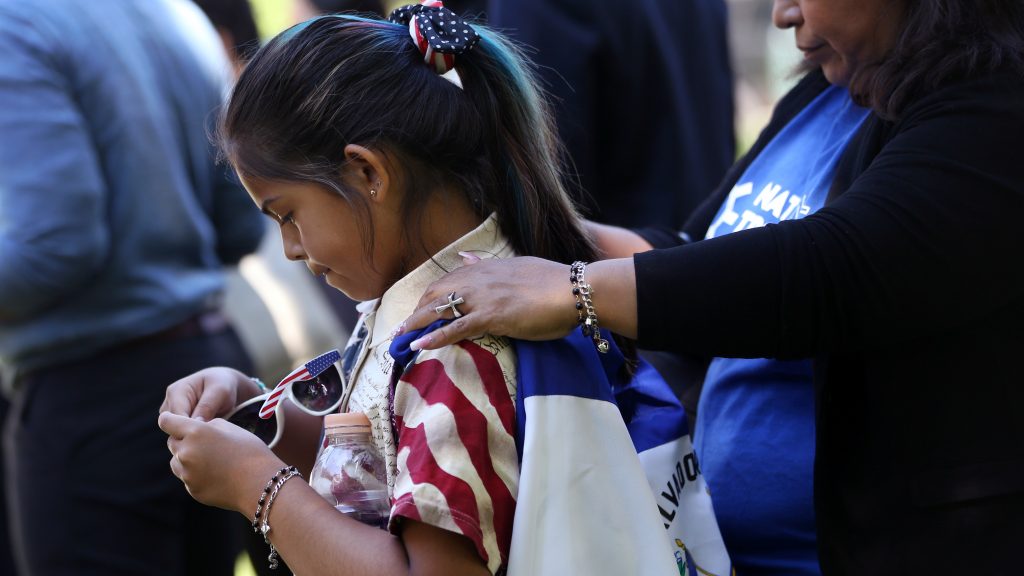Salvadorans with a special immigration status experienced whiplash in late October when the U.S. ambassador to El Salvador, in a video with the Salvadoran president Oct. 28, announced the extension of the program, only to be corrected hours later by the acting director of the U.S. Citizenship and Immigration Services.
"Some reporting has spoken of 'extending TPS.' That has important legal meaning, and that's not what happened (with) the agreements," Ken Cuccinelli, the USCIS official, said in a tweet the same day explaining developments in Temporary Protected Status for Salvadorans. "Rather, work permits for Salvadorans will be extended for one year past resolution of litigation for an orderly wind down period."
The reporting of the developments, however, came after a video released via Twitter by Salvadoran President Nayib Bukele, which shows him standing next to Ambassador Ronald Douglas Johnson, who announces in Spanish the TPS extension.
"We're very happy to be able to announce that today in Washington, D.C., we signed an agreement that extends TPS, for Salvadorans who are in the United States, for one more year," Johnson said in the video.
Most of the news stories for that day were written based on the ambassador's statement, which reversed the administration's earlier stance that by January 2020, it would end TPS for Salvadorans.
The program grants a work permit and reprieve from deportation to certain people whose countries have experienced natural disasters, armed conflicts or exceptional situations so they can remain temporarily in the United States. Salvadoran TPS recipients have arrived in the U.S. in the past because of war, earthquakes and other natural disasters.
It's unclear what the announcement means when only the work permits have been extended.
The U.S. Conference of Catholic Bishops as well as a variety of Catholic organizations in the U.S. have publicly supported TPS, but also call for a permanent status for the recipients, saying they have contributed to the country, own property, have U.S.-born children and should be allowed to stay.
After the end of the TPS program for El Salvador was announced in late 2017, the USCCB's Committee on Migration and other Catholic organizations sent a letter to the Department of Homeland Security urging an extension.
"Terminating TPS for El Salvador now would be inhumane and untenable; El Salvador is in no position to accommodate the return of roughly 200,000 Salvadorans," they wrote.
"In addition to potentially bringing harm to those returned, terminating TPS for El Salvador would likely destabilize this key strategic, regional partner, undermining the tremendous investments of the U.S. government,” they said.

